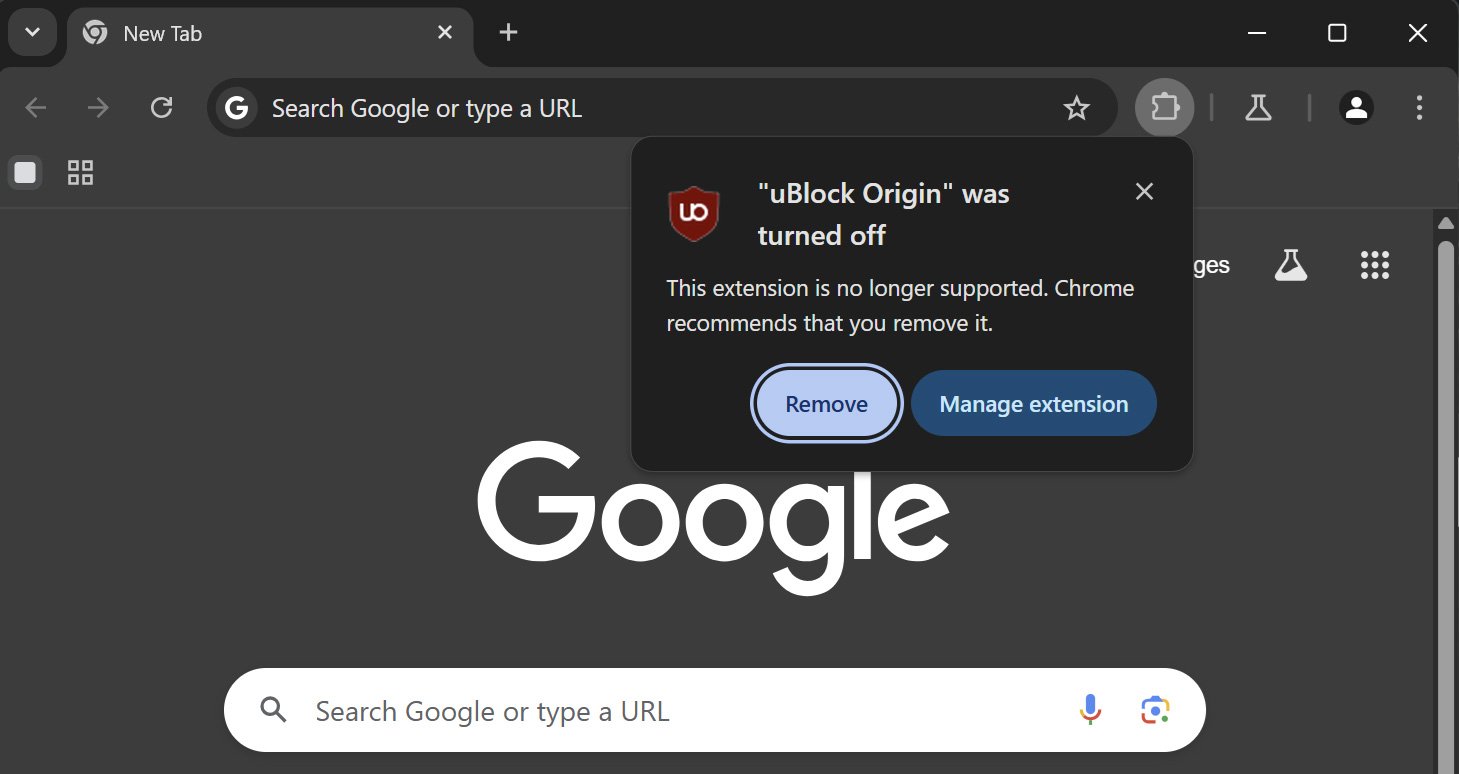Mozilla has renewed its promise to continue supporting Manifest V2 extensions alongside Manifest V3, giving users the freedom to use the extensions they want in their browser.
Manifest V3 is a Google-developed browser extension specification aimed at making add-on functionality in web browsers safer by restricting overly permissive network requests and remote content loading.
Despite the intentions, Manifest V3 places restrictions on certain types of add-ons, like ad-blockers, that can render them less effective.
As Manifest V3 enforcement is rolling out, extensions not compatible with it are being disabled from people’s browsers, depriving users of the choice of functionality over risk.
One notable case of deactivations confirmed by BleepingComputer late last week is for the uBlock Origin ad blocker, which has over 38 million downloads on the Chrome Web Store.

Although many ad-blockers have migrated to Manifest V3 versions, these are generally less capable of detecting and blocking promoted targeted content.
Although Microsoft Edge, Mozilla Firefox, and Apple Safari have all adopted MV3, they have done so with their own implementation modifications, allowing users greater freedom while still benefiting from the security enhancements.
Still, support for MV2 is the only way to go for older add-ons, and Firefox reiterated via an announcement today that it will continue to support it in the foreseeable future.
“While some browsers are phasing out Manifest V2 entirely, Firefox is keeping it alongside Manifest V3,” said Mozilla.
Specifically, the internet company said it would continue to support both the ‘blockingWebRequest’ and ‘declarativeNetRequest’ APIs, corresponding to MV3 and MV2, respectively, allowing extensions like uBlock Origin to continue working as usual.
Firefox has not stated how long this support will continue, but as long as there are powerful add-ons enhancing user privacy and security, Mozilla should continue to have strong reasons to extend support for Manifest V2.
Ultimately, Mozilla stated that this is a matter of adherence to ‘Principle 5’ of its own manifesto, which states, “Individuals must have the ability to shape the internet and their own experiences on it.”
When MV3 was introduced onto Firefox in November 2022, Mozilla said it would evaluate MV2’s deprecation towards the end of 2023.
Later, in March 2024, and with all the technical and practical complexities that arose, Mozilla declared that it had no plans to deprecate MV2 in the foreseeable future.
The latest announcement renews this promise, maintaining Firefox as one of the few web browsers in the landscape to give users the freedom to continue using Manifest V2 add-ons.
